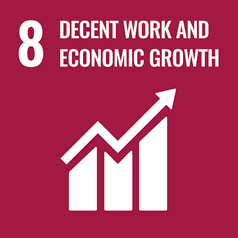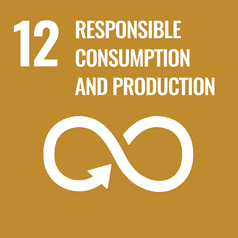Investment and procurement
The University currently has portfolio of approximately $400 million (2018) invested in Australian and international shares, property and infrastructure as well as fixed-interest funds. Our investment strategy is governed by an Environmental, Social and Corporate Governance (ESG) framework. We work closely with our investment portfolio manager, Mercer, to address the issues of environmental sustainability, including climate change, across the investment portfolio.
We no longer directly invest in fossil fuel companies and we have integrated Mercer’s ESG ratings across the University’s investments. In 2017, the University approved the transfer of all international investments into the Mercer Global Socially Responsible share funds.
We are also a significant purchaser of goods and services. To meet the changing expectations of key stakeholders, we are committed to understanding and managing social, ethical and environmental issues along the supply chain in a responsible manner. This includes compliance with the Modern Slavery Act 2018.
We have developed a Supplier Code of Conduct to help meet this commitment. It outlines the minimum terms and conditions of doing business with us. We require all suppliers to comply to the standards set out in this Code within their own operations and actively work with us to assess and manage compliance in their supply chain. This Code is based on the University’s own Ethical Framework and the Ethical Trading Initiative (ETI) Base Code. The ETI Base Code is founded on the conventions of the International Labour Organisation (ILO) and is an internationally recognised code of labour practice. The ETI base code reflects the commitment to ethical trade by stipulating the need for freely chosen employment, freedom of association, safe working conditions, and reasonable working hours.
Priority actions
- Improve our weighted average ESG rating across the University’s investment portfolio, and benchmark ESG ratings of peers’ institutions to inform best practice to address environmental sustainability impacts
- Measuring and monitoring the carbon footprint of the University’s listed equity investments, with the aim of keeping the carbon footprint below the relevant market indices, and investing in a manner that is consistent with the University’s broader sustainability commitments
- Integrate environmental sustainability principals into all finance business case decisions from 2019
- Implement the Ethical Decision Making Framework for Procurement across the University by end 2019
- Implement the University Green Supplier Checklist across 50% of key suppliers by end 2019, and 100% of suppliers by end 2020
- Ensure Fair Trade Association of Australia and New Zealand certified products are available on the University’s purchasing catalogue, and expand the availability of Fair Trade products via the food outlets on Campus by end 2019
- Develop and implement a Supplier Code of Conduct with a recognition scheme published on the University’s website by 2021
Measures of success
- Improve the ESG score of our investment portfolio by 20-30% by 2020, based on a 2017 baseline.
- Reduce the carbon footprint of our share portfolio by 20% by 2020, based on a 2016 baseline.
- Divest from fossil fuel companies that don’t meet our requirements for managing the transition to a low carbon economy by 2020.
- Invest 10% of the portfolio (or approximately $50 million) in investments aligned with the UN Sustainable Development Goals (SDGs) by 2020.
- Implement the Green Supplier Checklist across 50% of major suppliers by end 2019, and 100% of suppliers by end 2020
- Develop and implement a Supplier Code of Conduct with a recognition scheme published on the University’s website by 2021
Aligned with the United Nations Sustainable Development Goals
The University of Newcastle acknowledges the traditional custodians of the lands within our footprint areas: Awabakal, Darkinjung, Biripai, Worimi, Wonnarua, and Eora Nations. We also pay respect to the wisdom of our Elders past and present.



